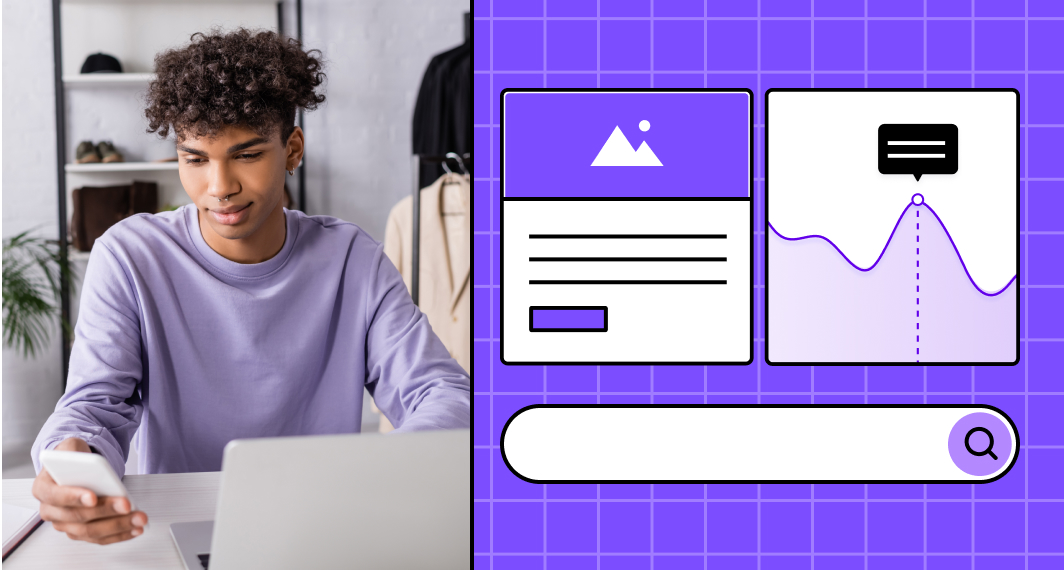What are product filters?
Product filters are interactive features integrated into online selling platforms that empower users to customise and streamline their product searches. Using them in your online store enables your customers to sift through the available products and find a curated selection that aligns with their criteria.
Using a product filter, the products that meet the user’s criteria are separated from the product catalogue. For instance, if a customer wants to buy sneakers worth $100 to $200, they can use the category filter combined with a price filter to look for choices that match their criteria.
The importance of product filters
Product filters are very important to delivering seamless shopping experiences. Product filters provide benefits to both sellers and customers 👇
Benefits to the seller | Benefits to the customer |
Improved conversion rates | Time efficiency |
Enhanced user experience | Personalisation |
Targeted marketing opportunities | Decision support |
Benefits to the seller
1 - Improved conversion rates
Implementing effective product filters on an ecommerce platform can lead to higher conversion rates.
When customers can quickly find products that match their preferences, they’re more likely to make a purchase.
This efficiency in the shopping process reduces the likelihood of visitors leaving the site without completing a transaction.
2 - Enhanced user experience
A positive user experience is crucial for customer retention and loyalty. Product filters contribute to a smoother and more enjoyable browsing experience, making it more likely for your users to return to your platform.
Happy customers are more likely to become repeat customers, which is valuable for a seller's long-term success.
3 - Targeted marketing opportunities
Product filters provide valuable insights into customer preferences and behaviours. You can use this data to identify popular categories, price ranges or features.
This information is very helpful for targeted marketing because it lets you make ads and promotions that appeal to specific groups of customers, maximising the impact of your marketing budget.
Benefits to customers
1 - Time efficiency
An online store can be overwhelming for many users. Product filters significantly reduce the time it takes for your users to find what they’re looking for by narrowing down options based on their specific requirements.
2 - Personalisation
Product filters contribute to a more personalised shopping experience, ensuring that your users are presented with options that align with their unique preferences.
This personal touch enhances user satisfaction and increases the likelihood of successful transactions.
3 - Decision support
By incorporating customer ratings and reviews into the filtering process, users receive valuable guidance and support in making informed decisions.
This not only boosts confidence in the chosen product but also fosters a sense of trust in the online selling platform.
What are the types of filters?
There are many types of filters that you can use in your online store. However, five are the most commonly used 👇
1 - Category filters
One of the fundamental functionalities of product filters is the ability to sort items based on specific categories. The category filters allow your users to narrow down their search within a particular type of product, making the browsing experience more focused and efficient.
2 - Price range filters
Product filters enable your users to set a desired price range, helping them stay within budget constraints. The price filter is particularly valuable for cost-conscious consumers who want to explore options that align with their budget.
3 - Size, colour and style filter
Filters offer the ability to refine searches based on product attributes like size, colour and style. This ensures that your users are presented with options that not only meet their functional needs but also align with their aesthetic preferences.
4 - Brand preferences filter
Many consumers have brand loyalty or specific preferences when it comes to choosing products. Product filters allow your users to filter results based on their preferred brands, facilitating a more personalised and brand-conscious customer experience.
5 - Customer ratings and reviews filter
Product filters often incorporate options to prioritise items based on customer ratings and reviews. This social proof aspect provides valuable insights into the experiences of other shoppers, helping users to make informed purchases.
Get a free app prototype now!
Bring your software to life in under 10 mins. Zero commitments.


 Facebook
Facebook X
X LinkedIn
LinkedIn YouTube
YouTube Instagram
Instagram RSS
RSS


